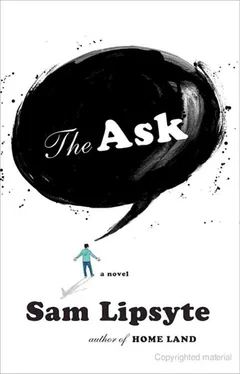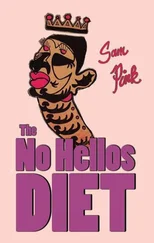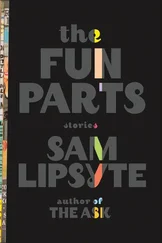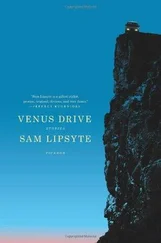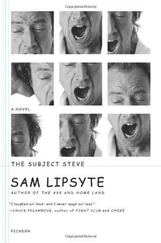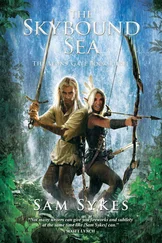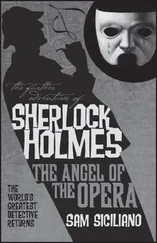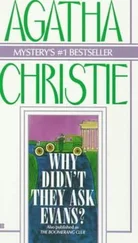"Well, this blood won't help you. Oh, and there's also the placenta. Maybe I'll do some kind of face-mask treatment. I'm not eating that crap. Friend of mine slapped his boy Bronco's afterbirth on a Portuguese sweet roll. Ate it with his wife right there on the birthing bed. Did it come with soup? No thanks, I say. Maybe I'll help with the snip-snip."
"The what?"
"The circumcision. We've decided to go with that. It's not a religious thing, it's just that Melinda thinks foreskins are repulsive. Plus they give women cervical cancer."
"Oh," I said. "Yeah. We didn't do Bernie. We went the other way on the question. Maura thinks. . we think it's mutilation."
"No, female circumcision is mutilation, not male. What planet are you on? What they do to the clitoris-man alive! I mean, especially if it's not even part of your culture, that is some brutal shit."
"I've never heard of that," I said.
"Never heard of what?"
"People doing female circumcision when it's not part of their culture."
"That's what I'm saying," said Purdy. "How insane would that be?"
"Will the midwives do a circumcision in your home?"
"No, but Melinda's doctor has already agreed to be here just for that procedure, so we can get everything out of the way in one shot. The midwives and doulas are cool with it. It will be a melding of opposed philosophies as only a rich motherfucker like myself can engineer."
"I see."
"So, anyway, sorry to ramble. I've just been sitting here watching TV and spinning my wheels. I'm not even forwarding through commercials. You should see the kind of stuff they've got on. I now officially know more about the Maxim gun than I ever thought possible."
"I saw that one."
"I bet you did," said Purdy.
"What's that supposed to mean?"
"Oh, did that sting? Come on, Milo. Don't be so sensitive. And don't take yourself so seriously. We both know what your life has been like."
I stayed silent for a moment, listened for the owl.
"Milo?"
"Purdy, why'd you call me? You must have got word from Lee Moss. Your son is thinking about it. But I think he will sign the papers."
"I know that."
"So, why did you call?"
"Do I need a reason? Don't you work for me?"
"No, I don't. Maybe I do. I don't know."
"Don't worry about that," said Purdy. "I called because I can't sleep. This is when we always used to talk. Like in the house on Staley Street. You'd always be there. You were my friend. Weren't you my friend?"
"Yes," I said.
"I don't have too many-"
"Yes, you do."
"Yeah," said Purdy. "But they're all asleep right now."
Nobody told me about the noon staff meeting. Nobody told me much of anything these days. I was some kind of bad luck charm. I was somebody's error in judgment all over again. But the energy tides eluded me. I was stranded on a shoal with my turkey wrap. A Post-It note on my computer reminded me to ask for more Post-It notes. But I was afraid to ask. I wasn't even drawing a salary, but I did not want to be a drain.
Nobody told me about the noon staff meeting, or even waved me over to join them now, but I followed them into the conference room anyway, found a chair between Horace and Vargina. There were people from other teams I did not know that well, a tall Asian man who raised money for the business school, a white woman with cat glasses who handled undergraduate gifts. The early arrivers had left chairs between themselves and others, the way travelers on a bus might prop their suitcases on the seats beside them, make a play for solitude. But the room filled up. We'd packed the bus. Now the driver climbed aboard.
Dean Cooley walked in and slapped a folder on the desk. The folder sported the new lime green tabs a recent directive had mandated. War Crimes scanned the room until his eyes appeared to alight on Horace, who wore a tuft of his hoagie's shredded lettuce on his chin.
"In my time," said Cooley, "I have been a combat marine. Trained for combat. Trained to kill. But I never saw combat. I never killed. It was my blessing, and my misfortune, to be an instrument of war at a time of relative peace. So, as I say, I never saw combat and I never killed. In my time I have also been a purchaser and purveyor of bandwidth, not that there was much difference in those heady, early days of bandwidth. We were all for one thing: more bandwidth. Above all, I was an instrument of bandwidth. But I never saw bandwidth. How can you see bandwidth? You can see measurements of bandwidth. But you can't see bandwidth. It does not matter. What am I driving at?"
Some of us slid our lunches off the table, into our laps, or bags.
"Anybody? Nobody? Anybody?"
"We don't need to know?" said the man from the business school team.
"Know what?" said Cooley.
"Who we are?"
"No," said Cooley, "you need to know who you are."
"What we represent?" said the woman with the cat glasses.
"You represent the university," said Cooley. "What about you, Llewellyn? You're one of our franchise players. What the hell am I talking about?"
"I know!" said Horace.
"Go ahead, Lettuce Face."
"We need to know you believe in us."
"That I believe in you?"
"Yes," said Horace.
"But I don't believe in you, young man. That's not my job. I'm not your mommy. I believe in results. Does anyone know what I'm talking about? Vargina? Sean?"
Vargina and the man from the business school development team nodded.
"Anyway," said Cooley. "Llewellyn, you were going to enlighten us."
Llewellyn propped himself up on his palms.
"Well, to be perfectly honest, Dean, I am not entirely clear on your line of thought, but I believe it has something to do with conviction."
"Conviction."
"Yes."
"Very interesting."
"Is it?"
"It is. You're very close."
"I am?"
"Yes, you are," said Cooley, raised his hand as though it held a dog treat. "It's right over here, Quantrill. Come for it. Let's hear that rebel yell."
"Conviction about the product," said Llewellyn.
"Okay. ."
"Conviction about the product even if it is something of an abstraction. Conviction that we can weave a story, as it were-"
"Story, yes, that's it, keep going. ."
"A narrative in which-"
"Narrative? Don't get fruity."
"A story. ."
"That's it. ."
"A story about all the wonderful things that the give can bring about, a story, in our particular team's case, about the role of culture as both a bulwark of the civilization we cherish and a bridge, an interconnective bridge, to other incredibly and wonderfully global modes of thinking and being, as well as a story about young and diverse and often sexy people expressing themselves through their creativity and in doing so spreading a kind of artistic balm on the wounds of the world, a balm that not only heals but promotes understanding, especially in a world, a globe, as global as ours, where isolation is no option, where the only choices are globality or chaos."
"Globality or chaos?" said Cooley.
"Yes," said Llewellyn.
"You sure?"
Llewellyn squeezed his fists, nodded his head.
"Yes, I'm sure."
"Damn right, you're sure! Because that's what I call a fucking story! You see? You see, Lettuce Face? You hear that, feline and voluptuous secretary from the 1950s? That's the bull's balls, right there!"
"Thanks," said Llewellyn.
"No, thank you, young gentleman. Not only for that cogent and rousing description of what it is we do around here, but for something far more important. See, Lew here is what we call a change agent. He brings in the loose change of the rich folks. It falls out of their pockets and Lew is Johnny-on-the-Spot about bringing it here to us, to our students, to our joint glorious project of bulwarking and bridging. What I'm saying is, the papers on the Teitelbaum ask have finally come through. Guess which students at which university will have a new game design center?"
Читать дальше
